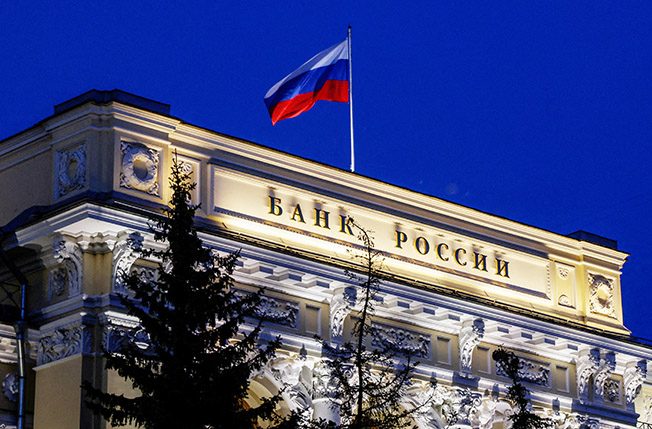By Maria Demertzis
It is now 14 months since the Russian invasion of Ukraine and based on the Kiel Institute Ukraine support tracker, EU countries have so far provided close to €62 billion worth of assistance, either bilaterally or through EU institutions. This bill is increasing with time and so is the pressure to find other ways to help Ukraine. In a recent paper, the EU explored ways of investing the immobilised assets of the Russian Central Bank (RCB) to generate funds for Ukraine. Even though this is not an attempt to appropriate RCB’s assets but rather a way to generate income, this is still not a good idea.
It is estimated that about $300 billion of RCB foreign exchange reserves are in G7 countries, the EU and Australia. Those reserves were immobilised in the first package of sanctions in February 2022. It is estimated that two-thirds of these assets are located in EU countries: a total of €191 billion in Belgium alone and €21 billion elsewhere in the EU, held mostly in cash.
Current rules dictate that when sanctions are lifted in the future, the owners of the assets (namely the RCB) must receive them back in full, plus the interest owed as agreed contractually before the sanctions were imposed, but minus the costs of handling these assets during the sanctions period. This defines the EU’s legal obligations to the RCB. The EU is currently exploring legal ways of managing these assets to generate income that goes beyond its obligations, which could then be used to help finance Ukraine.
The EU’s paper suggests that there are ways of managing these assets to generate economically meaningful returns, to the order of €0.6-4.7 billion in the first year. Nevertheless, there are three reasons why this is not worth the effort at best and a bad idea at worst.
First, no investment is ever risk-free. To be able to mobilise these assets and invest them, the EU would have to provide guarantees that in the event of losses, it would still honour its legal obligation to the lawful owner. This necessarily means that the EU must provision for such losses that provide guarantees upfront.
Setting up a fund to guarantee the RCB assets is costly, no matter how small it is. The EU should not incur any cost to manage the funds of a country that it sanctions. This would go against the punitive nature of sanctions and the optics of the EU setting up an RCB reserves guarantee fund sends the wrong message. Beyond the economic risk, there is also a legal risk. Would this ever hold up in an international court? The EU paper emphasises the importance of international cooperation in making a case for such action as well as for finding ways of investing these assets. This is a cry for legitimacy. Why would the EU, a big proponent of multilateralism, actively take such a risk?
Second, investing these reserves in a short time period, an amount in excess of €200 billion, is not easy. The EU would need to invest as many of the reserves as possible in ways that could both generate sufficient income and could be liquidated quickly in the event of lifting sanctions. Investing such an amount in a short space of time, particularly as it would have to be in very safe assets, can cause volatility. By means of comparison, the ECB is currently reducing their APP holdings at a rate of €15 billion per month and is monitoring whether this introduces financial volatility.
Third, even if the exact implications of such actions by the EU alone are unknown, we know they contribute to fragmentation. We have already seen that foreign exchange reserves held by central banks globally have been reduced by 8 per cent in the space of one year. Instead, central banks have bought gold, the asset of last resort, at rates not seen since the 1950s. The immobilisation of RCB assets has reduced the insurance value of foreign exchange reserves, particularly if they are held in foreign central banks. We also see that while the EU is just discussing the issue of how to actively manage RCB reserves, Russia has already retaliated by freezing Western companies’ assets in Russia.
Paradoxically, it may be easier, legally speaking, to make a case for seizing Russia’s state assets held abroad than it is to make a case for seizing any given oligarch’s assets. Yet, the EU must resist that temptation. There will come a time when Russia pays for the destruction it has caused. But for now, it is best not to make a bad situation worse.
Maria Demertzis is a Senior fellow at Bruegel and part-time Professor of Economic Policy at the School of Transnational Governance at the European University Institute in Florence. The article is published by Bruegel and is also posted on the blog of the Cyprus Economic Society







Click here to change your cookie preferences